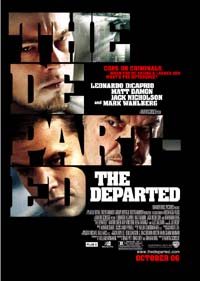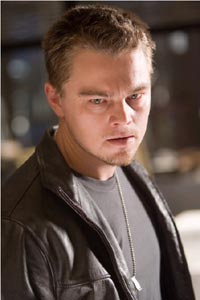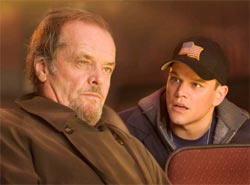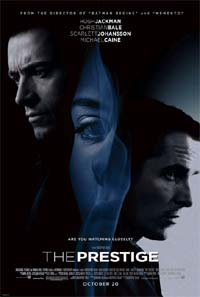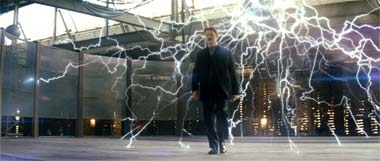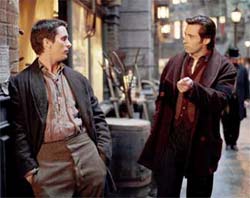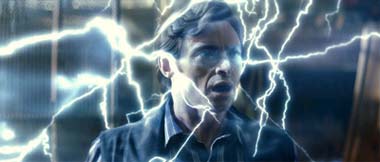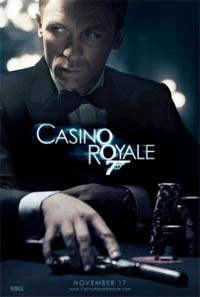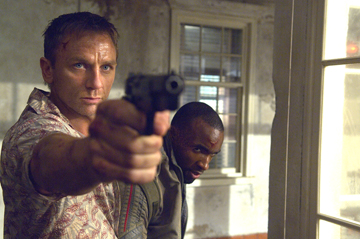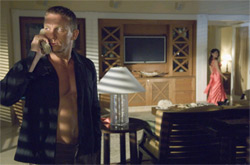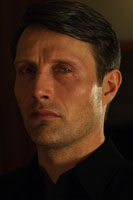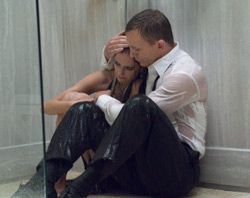 The Last Kingdom: Chapter 3
The Last Kingdom: Chapter 3It is a brilliant summer morning with a westerly breeze, and the sun beats down on the beach, scattering along the tops of the incoming waves. She runs, like a kite on the loose, her braided hair flowing wildly behind her, surpassing gravity and sadness. Long ago the villagers had come to the same conclusion, She’s a rare one, that girl, and now she is proving it, for the young men who trailed her are panting, their clumsy muscled legs too broad and heavy, their pace too erratic, impeded by the sands that are still dark from the previous day’s rainshower.
Come on! she shouts, and like a coquette, she twirls around to face her pursuers, especially the young man at the front of the pack.
Come on, Li!
Li, the stallion, the young man who died once and came back, the lone hope of the village, snarls, his lips pulling back from his teeth in a dazzling resemblance to a real horse, and leaps forward, his feet clawing at the sand, driving him forward with inhuman force, and yet he is laughing, a high laugh that seems at odds with the dark power that propels him.
You have to do better than that, Mei! he cries.
The beach concludes with an outcropping of rocks and crags that form the base of one of the three hills from which the town earned its name, but it would be more accurate to say that it is a mountain, for the top of the hill juts into the clouds. In the best conditions, it would be a chore to climb, but at this time of the day, at high tide, the waters lashing the land, it is nigh impossible. Yet Mei does not hesitate; with a practiced leap, her arms thrown out like wings, she runs up the first boulder, her momentum propelling her to the top of it, seemingly outrunning even the spray that scatters everywhere like disintegrating pearls. Her arms thrust out, pulling her up onto the second rock, her tiny feet unerringly finding the little nooks to accommodate them, and she climbs. Within seconds her fingers are sore and bleeding from the water-sharpened rock edges, but still she smiles.
The other young men are huffing their disbelief; foul words have replaced determination.
That little witch! She’s not a human, she’s a monkey!No, a bird, Li grins, and to punctuate the difference he screws his face into the hoo-hoo look of a primate. With a jocular bound from side to side, he climbs up onto the first rock, his pace no match for Mei’s, but possessing a grace of his own.
Soon there is just the two of them, as they intended, and she climbs higher and higher, her knuckles popping and bleeding, and he follows, his tougher skin growing pink with rawness. For them, time does not move, and they take no note of the sun as it rises in the aquamarine sky. He prefers a more circuitous route that takes him out of the sun, into the crags, while she presses on in open daylight, grabbing hold of the tough shrubs that grow in the open, pulling at them to hoist herself up, letting go of them just before they come completely loose from the mountain and tumble into the sea below. Soon they are above the water and mists, but it is still many feet to the top, and the rock face is sheer. Now his physical strength is gaining the advantage, and he has nearly caught up to her. Just another lunge, another reach with his arm, he can touch the sole of her foot, and victory is his.
Don’t bet on it, she smiles, and with a little tap, she sends a loose rock his way. He bats at it with his hand and knocks it away, but at the cost of his progress, and now she is scampering ahead with renewed energy.
Another hour passes; exhaustion sets in. Too tired to even cajole each other, they continue, intent on reaching the top of the miserable little mountain. Li slips out of his outer tunic and lets it fall away – it flutters halfway down the hill before coming to rest on an outcropping, a ghost laid low. Mei wipes at her forehead with her sleeve until the silk droops heavily from her arm. The sun is no longer just light but also heat. Both of them touch their exposed necks from time to time, exploring the pain of touch, as they have both been burned.
They are nearly at the top. Mei stretches out with arms that have gone dead with overuse. It is no good – she cannot pull herself up any more. Even her legs have gone numb. She will be stuck here, at this particular juncture, mere feet from her goal.
Come on, you stupid girl! Li calls up.
You’re in the way!The words are like tonic. With a final agonized cry she hoists her body up, over the last bit of rock, rolling to a dead stop, dust and pebbles in her mouth. Li is right behind her and lands alongside her, face to face. He leans toward her, but she turns her face away, having mastered the art of intransigence.
You didn’t earn it, she says.
Yes I did, he laughs.
If I didn’t insult you back there, would you have had the strength to finish?You would like to think so.They lie like that for a while as the wind whistles across the top of the mountain. Her head is turned away from him, but his fingers are holding hers, bringing them up to his lips. He kisses them, sucks on the dry blood, runs his tongue around the wounds. She winces at the pain. He has moved on to her sleeve, and he pulls it back, exposing her pale arm. He is kissing that too. Her stomach flutters, and she forgets to breathe.
Stop it, she says, in a calm tone of voice.
This is the only time you let me do it, he says.
She plucks at the earth-toned fabric of her tunic. She has never considered herself vain or fashionable, and yet she misses the greens and yellows of her early childhood. Everything else – the sight of a lantern scoring the night sea, the heavy accents of the villagers, which to her sounded like the slurred happy talk of children who have just woken up in the morning, the pleasing scent of cod cooked over an open fire, marinated with peppercorn and dark salty sauce, the jeers of the other girls as they sat in their single-room school, knocking the bottoms of their wooden chairs against the stone floor, even this insolent boy who had stolen her innocence – everything else was precious to her.
She holds his head between her blistered hands. If she had the strength, she would crush it, just to see what his reaction would be. He would survive, no doubt, even if she pressed hard enough to pop his eyes out of his skull and crush the bones in his cheeks, he would still smile, and he would still demand a kiss, and he would unbutton her tunic with the concentrated solemnity of a priest burning paper money to the ancestors. And once again she would laugh, and pinch his nose betwixt thumb and forefinger, like the other time, and he would accept the punishment with a graceful nod of the head.
She kisses him hard on his chapped lips.
Mmm yes, he slurs.
I’ll always defeat you, she says.
That’s fine, he retorts. Just remember, I was the one who saved you.
I let you live, she says.
You people from the central region, you’re all alike. You’ve got that chin.Chin?Yes, sticking up into the air, like you must prove yourselves more worthy than the rest of us.And you fishermen don’t feel the same?You want to know how we feel? His hand is moving underneath her tunic, touching her skin. Within her blurred vision, he seems distant, as if he is a dream that is rapidly fading with the first moments of wakefulness.
Li, she whispers.
Have you ever thought of leaving?Only if you go. Then I’d have to chase you down. Always.You can’t promise that.I don’t make promises. I simply act.With an abrupt cough, he sits up, gazing down at the ocean – it has grown gray in the afternoon light. She sits up as well, and rests her head on his shoulder.
See that? He points towards the watery horizon.
No one knows what’s on the other side. We have our little world here, and over there are places, people, things that no one can dream. Why don’t you run out there, and I’ll follow you?Why not together?You want to be first, don’t you?You don’t mind being last?I won’t be last, I’ll be right behind.She gives a haughty little laugh.
You’re just scared to be in front.Horses runs where they will. They only have a destination when they follow someone they respect.She clears her tired hair away from her eyes and looks at him.
All right. Someday. You will follow.I will follow, he vows. He has picked some azaleas from the ground and offers them to her. She accepts them with a slight bow of the head, as if they are at a banquet and being introduced for the first time. Then she bites down on one of the petals, laughing. Far below, somebody is shouting, the sound of it as distant as thunder:
Li! Mei! Are you up there? Are you all right? Neither of them listen, his arms are around her again, his lips to her neck, her face, her exposed shoulders, and they lie in each others’ arms, out of sight of anyone at the bottom, the plucked flowers rolling away and spun like tops as the wind carries them into the ripening afternoon.
The fishermen have returned to port and are carting their day’s catches up to town when they see the one-armed hunter. This time he carries himself with the air of one who is content, and although he has not gained any weight since his last visit five years before, he saunters into town as if he is a heavy, plodding man of leisure.
Ling, the sole local guardsman, is on his back, loafing at the side of the road, his knees jutting up in the air and a wheat stalk clenched in his teeth. Like many who are given a duty of public importance, he has an indolent manner that indicates that public service, or public niceties for that manner, are of little interest to him. As he sees the hunter emerge, walking the twisting stone path that cuts between the north and central hills, he climbs to his feet with an aggrieved growl and calls out:
Who goes there!Be at ease, slothful public servant, the hunter booms.
I’m back!Ling mutters a few imprecations and returns to his lounging.
Damn woodsmen, he thinks.
Only come by when there’s good fish to eat.The hunter has some pelts slung over his shoulder. Some children running down towards the sea, eager to play before the sun grows red and cold, pass by him and stare at the dead animals.
Is that a fox? a rosy-cheeked girl asks.
Yes indeed miss, he replies, crouching down on one knee and letting her pet the fur.
It’s a magic fox.Magic?You know what they say about fox spirits—how they can change their appearance, look like you and me?For how long?Some do it for years. Some of your friends might be foxes.She sucks in her breath, stealing a suspicious look at the boys in the group.
Why do they do it?He laughs.
So they don’t end up like their cousin, here. But some of them like the idea of being human. It’s like a game. And then one day, the game is up and they must return to the woods.If one of my friends is a fox, she says solemnly,
then I will catch him and put him in a cage.
Oh, he says, his intensity matching her own,
you can try. But a fox-human has never been caught. Never.I will, she says, wagging her body from side to side, caught up in the idea.
Well, best of luck to you, then. And with that, he pats her on the head with his single arm, and continues on his way. Ahead are the town gates, rickety bits of wood that are never closed, and beyond that is the town’s main and only avenue, a dusty promenade where the tea houses and dry goods stores sit side by side. Rich merchant’s wives are driven in bumpy little carts pulled by mules, while the fisherman lope down the street in their sandals, picking at the holes in their mouths where teeth once lived, saying hello to proprietors and fish vendors with wrinkly grins. It is close to sunset, and the locals are preparing an outdoor feast to celebrate the weather; rice wines are rolled out in their barrel-like jars, while the women of the town hang scrolls of good fortune and red streamers across the tiled roofs.
The hunter waves hello to Li’s parents, who have taken charge at one of the cooking tables, stirring bits of chicken, mushrooms, and bamboo in the clay pot.
Hello! Mr. Li says, grabbing the hunter’s hand with both of his own. Compared to the hunter, he is a small, rotund man, but to everyone else in the village, he is a rock. As he is widely acknowledged to serve the best crab in town, high officials and army generals have dined in his rickety restaurant, without complaint: after a helping of his dishes, the rotten high beams are grand and the creaky floor is quaint.
An auspicious evening to you, the hunter greets him.
How is your boy? Strong and tall and straight?And lazy, Li sighs. His wife looks up from her cooking, her face and arms wet from steam, and nods a curt hello to the hunter—she has never trusted him, although it is unclear whether that is because she does not believe in the man’s avowed superstitions, or is afraid of them.
Take over, Li says to his wife, and invites the hunter inside for a cup of plum wine. The hunter lays the pelts out on the table, and points the largest one out.
This one is yours, he says.
I couldn’t afford—No, no. A gift. It brings luck. You will need it.Do you see something?It’s not very clear, but it is a bad portent. Hey, never mind, you’re protected now. He finishes the sweet wine in a single gulp, and politely asks for another cup.
And how is the young girl?Mei is fine. She is a rare beauty.With rare talents, eh?Oh yes. Strong as any of the young men in town, and beautiful enough to catch the eye of all of them.Quite the mystery, eh? Everyone loves a good mystery.Speaking of which, have you—?Hmm, yes. I’ve crossed rivers and mountains, made inquiries. It’s difficult to sort out true tales from lies these days … there are so many people who have disappeared, or have changed their names, left their old hometowns…Yes, Li says quickly, impatient,
but anything about Mei?Possibly from the West, the hunter says.
The fabric you gave me—the cloth that belonged to the dead people in the forest—it is definitely from the West. It has the same style of cross-weave. The artisans confirmed it. And you’ve noticed her accent, of course.We’re simple people, Li shrugs.
Accents don’t mean much to us.You’re lucky. In some places, an accent means the difference between friendship and death. Another cup, please.Maybe it’s best she remains with us, after all, Li says.
We don’t live special lives, but we have peaceful ones.Absolutely, absolutely, the hunter nods vigorously.
Just thought I’d see what I could find. And I must thank you, for if I didn’t investigate this little mystery of yours, I would never have opened up that new trade route past the Song River … or heard some new tales.What tales? Old Li has rolled himself a cigarette, and eagerly stuffs it in his mouth. It is so rare to receive this kind of break from routine, and experience the power of a simple story.
The thick cloth curtain that marks the entranceway to the restaurant flutters open and Mrs. Li enters. Avoiding the hunter’s gaze, she says,
We need more help.Fine, fine, Mr. Li says, and with many apologies he leaves, Mrs. Li pulling the cigarette out of his mouth as he passes her, repeating a scene that happens every evening. The hunter sits alone in the restaurant. He is pleased by how the scent of cooking seems to permeate every bit of the room, from the table tops to the walls, to the wall hangings with their single characters signifying Luck and Good Fortune.
So few of these towns left, he ruminates,
where people think of nothing but a peaceful life.
Tell me some of those tales.A muscular arm has wrapped itself around the hunter’s neck. It is young Li, freshly washed and dressed in the standard evening gown of his clan—deep red earthen tones, a black collar, smartly tucked at his hips, loose and free at the legs.
You’ve improved! the hunter laughs.
Caught me daydreaming. Good to see you, young man. You’ve grown big. I daresay you’ll be bigger than me in a few years.You were going to tell some tales, Li says.
When you’re old enough to drink, I’ll tell you.Li’s foot flashes down, fast as thought, and bangs against the top of the table, sending the jar of plum wine airborne, into his arms. He holds the tiny mouth of the jar against his lips, and swallows five whole gulps, the liquid bulging against his throat as it courses down.
Well done, the hunter guffaws.
If you like your wine, you’ll be interested to know about the Wine of Knowledge.Yes, yes. All at once Li is like a child again, sitting down to face the hunter with burning red cheeks, both elbows on the table, at all attention.
Back in the days when the country was one, there was a sage who lived on Fuxing Mountain—no one knows exactly where it is, but it’s rumored to be in Tacheng County, deep in the hill country. The sage was said to be all-knowing, and the unifying emperor of the first Chu Empire wanted to make use of his talents, so with his army he marched to Fuxing Mountain, and demanded that the sage sit on his council. But the old sage was tough and unyielding, and declined the request. The emperor was ready to execute him right then and there, for a man with such a talent cannot be allowed to aid anyone if he does not aid the emperor. But the sage suggested a compromise: he would ferment a special wine that would grant the power of knowledge to whoever drank from it.Outside, torches are lit as the villagers sit down for dinner. The clatter of cups and plates and conversation tinkles, like a slight breeze. Already the village minstrels are singing the well-known folk songs:
The birds alight from the willow treesAnd fly off to their winter’s restThe moon grows cold at the doorAs we think of those who will soon be goneThe sage eventually produced a jug of the wine, the hunter continues,
with one simple bit of instruction: take a sip of the wine with a question in mind, and the answer will come. But then he wagged his finger at the emperor and warned him that if he were to partake of the wine, he must consider his questions carefully, or else he would encounter only misery. As soon as the sage handed the jug to the emperor, the emperor had him executed on the spot, so one else could take advantage of this great gift. And then he took a sip of the wine. And another. And another. Soon he had finished one cup, then two, then three. By the end of the third cup he sealed up the jar, locked it in a chest in his room, and never spoke of the wine again. In fact, he rarely spoke a word after he drank the wine. He stayed in his palace, having fallen into deep despair, and within two years his reign was over, and the period of the Tai civil wars began.The hunter paused for dramatic effect, taking advantage of Li’s absorption in the tale to grab the plum wine from his grasp and pour a fresh cup for himself.
So did the wine work?There are many stories about that one. Some think it was a slow-acting poison that ruined the emperor’s mind and health. Others think that it was perhaps the greatest wine ever created, taking the emperor into a drunken stupor that he never recovered from. And then there’s the explanation from the folks in Tacheng County, which I tend to believe, given their proximity to the origin of the tale. Which is this: the wine did indeed do what the sage said, and answered every question the emperor asked of it. And what do you suppose the answers to the emperor’s questions were? That his reign was doomed to failure in two years, that his descendants would either be executed or reduced to peasants, that his grand empire would never amount to anything but some ink on a historical parchment. And after that third cup, the emperor realized that he had no questions left, nothing he could learn about the universe or his life that would effect a single change to his destiny. He was after all just a small man who happened to be the emperor, who did not have the wisdom or foresight to use this terrible knowledge he had. So the first Chu Empire crumbled, and the wine was lost and forgotten, but some say it is still out there, hidden somewhere, perhaps buried in a grave, or concealed in the present Eastern Empire capital, awaiting the day when a truly wise man will make use of its powers. A day many long for, but just as many fear, because what if the wrong man gains possession of the wine? What terrible events will take place when one is armed with limitless knowledge?The hunter settles back in his seat. Outside, the folk lament reaches its conclusion:
The Song River turns to iceThe winter fires burn all nightIn the distance, a long eagle criesAs we cry out to the end of the worldYoung Li licks his dry lips.
And you believe all that?With a great yawn of contentment, the hunter rubs at his eyes.
I’ve seen too much to not believe the stories I hear. Go on, join the party outside. I’ll be around later.With another handshake, the hunter takes his leave, lumbering outside and down the avenue, no doubt making for the woodcutter’s home—it is commonly known that the woodcutter’s daughter has a weakness for the woodsmen. Instead of joining his parents at the front of the restaurant, Li exits at the rear, where there is a view of the hills and the dying sun in the west. Out front, the drinking games have begun, as the villagers call out numbers and rhymes, timing their drinks to their shouted declarations.
What are you doing there? It is Mei, placing a hand on his shoulder. In public, this is the most they can do.
The hunter’s in town, Li says.
Brought us a fox pelt.Ah, she scoffs.
More folk tales.Too simple for an elegant person like you, he mutters.
Taken aback, she dares to wrap both hands around him, her fingers crossing just over his heart.
I didn’t mean—No, it’s nothing. He reaches back and touches her head, where the whitish scar lies.
He’s been traveling everywhere, looking for clues about your past.Almost imperceptibly, her hands’ grip over his heart loosens.
Did he find anything?Not much. Only that you’re probably from the West.That doesn’t matter to me, she says.
Li thinks,
I know it doesn’t. You’re happy being here, but this place is not for you, nor is it for me.What if we left tomorrow? he asks.
Going where?Anywhere. The West. Tacheng County.Hill country? But it’s dangerous in the interior—Yes, he says, his eyes shining with the last light of day.
I believe it will be.What will your mother and father—Ah! he shakes his head.
That doesn’t matter. We’ll be back someday. I know it.She lowers her eyes, feeling the evening chill.
Maybe not tomorrow, she says,
but someday, perhaps.Still a bit drunk from the wine, he puffs himself up to argue, but then sees that she is cold, and relents.
Fine. Someday, he grins.
Out front, someone unleashes a set of firecrackers, and the sky flourishes with yellow and red light for a few moments. Lost for words, afraid of everything but the presence of the other, they say nothing; they just stand there, gazing with uncertainty at the conflagration behind them, and then at the darkening hills ahead.
Ling the local guardsman, tipsy from a full night of drinking, his straw hat perched at a raw angle on his head, totters on his rounds. The last of the villagers has dragged himself off to sleep, and stray bits of fish bone and spilled wine dot the avenue. All the banners that were hung up for the evening festival shiver in the breeze.
Three in the morning! he calls out, louder than any drunkard. The lantern torch he carries bobs from side to side, and with an annoyed click of the tongue he tightens his grip along the shaft, but to no avail, for it is not his arms that are the problem, but the rocking of his entire body.
The hunter has pulled up a rattan chair and sits by himself on the porch of the woodcutter’s house. His shirt hangs down to his knees, and his hair is tousled. There is no doubt what he has been doing inside, with the woodcutter’s daughter. Ling stumbles over to him. At last, he thinks, a chance to show him what’s what.
Maybe in the woods you can do what you want all night, but in this village, we have a curfew, he says.
The hunter holds a piece of wood between his thighs, his lone hand carving it, slicing away shreds, forming a pointed object, like a needle.
Three in the morning, he says.
The time of demons.
What’s that you say? Didn’t you hear what I told you?Demons rise when souls are asleep. And woe be the fool who is awake to greet them.Are you…Ling has been insulted, he is quite sure of it, but no one has ever had the temerity to address him this way in his long career as public official, and he stammers for a response.
Giving a ghoulish little noise, the hunter tucks away his knife, rises and walks over to him. He towers over the little man.
Woe be the fool … he hisses in a knowing, half-joking tone.
Stop that, Ling yelps. The lantern swings back and forth, casting anguished shadows over the hunter’s face.
Shhhh, take it easy, says the hunter. He is looking at Ling, but the old man feels as if he is looking through him, as if he is nothing but underbrush, or a stray tree branch, and the real prey is just beyond.
The hunter reaches over and plucks the straw hat off Ling’s head.
Hey! Ling grabs at air as the hunter dodges from foot to foot, keeping the hat out of arm’s reach.
You’ll pay the penalty for aggravating a public official –Ling leans in until his face is right up against the hunter’s. The hunter drops the hat, and as the watchman’s eyes follow it to the ground, the hunter tightens his grip on the sharpened piece of wood, and buries it in the old man’s neck. Soundlessly, Ling collapses, the lantern let loose from his grasp, and the hunter scoops it up in his hand before it touches the earth. On the ground, Ling jangles like a puppet, his mouth caught in a rictus grin and the last bit of breath whooshing out. The hunter observes him for a short while, taking note as the man’s limbs flop, then subside, and kneels down to watch the widened eyes go glassy. He kicks at the body like it is a pebble in the road, and ushers it over to the side of the avenue, down into the stone gutter through which the water runs through the town. He scoops up the fallen hat with his foot and with practiced ease kicks it into the air so that it lands on his head. Adopting the watchman’s stumble, he continues on the rounds, calling out every so often:
Three in the morning! Three in the morning!Soon he is at Li’s restaurant. He blows out the lantern and waits for a good interval, merged with the shadows, making sure that his eyes are adjusted to the dark. That is the problem with villages, he reflects—too much good food and lanterns all night, and your skills deteriorate. When he is ready, he creeps into the restaurant, positioning his feet in all the right places so as to not make noise, as he had noted which floorboards squeaked when he had visited earlier that evening. Engulfed by darkness, he climbs the stairs, to the living quarters. He pauses at each doorway, ensuring that everyone is asleep. Mei’s room is the last, and he finds her in bed, her features relaxed by sleep, completely lacking the sweet ferocity she sometimes wore during the day.
The hunter leans over her and studies the whitish scar on her forehead. Yes, no mistake, he thinks. This is what I was told.
Her eyes flutter. Even as she sleeps, she struggles to awaken. Remarkable, he thinks. She can sense me.
He retrieves the vial from the folds of his tunic, and applies a good dollop to the corner of the bedsheet. He then grabs hold of the sheet and clamps it over her nose and mouth. For a few seconds her eyebrows furrow, and she is on the edge of wakefulness, but the concoction does its work, and she is unconscious again, only this time her skin has a pale cast, as if she is waxwork.
He pulls her up and slings her over his shoulder. The effort steals his breath for a moment, and he feels a slight twinge in his right hip. Cursing himself, he thinks:
I become old, after all.
He exits into the hall, and descends to the restaurant, moving fast now, so fast that he does not notice that someone is at the foot of the stairs until he is nearly upon her. It is Mrs. Li, bundled in the sheets of her bed, and she is just as astonished by his appearance as he is by hers. She opens her mouth to scream.
No, he whispers, his hand to her mouth, his fingers digging into her skin, physically keeping her lips shut.
She reaches at him, pounds at his shoulders, whimpering sounds caught in her chest, and all the while her eyes are blazing with something akin to triumph, as if she is saying to him,
I knew it, I knew it, I was right about you.He releases his hold, and in that moment she yells, but only for an instant. If she had decided to run, she would have perhaps escaped, but she was committed to saving her adopted daughter, alerting the rest of her family. And so she stands, frozen in place, and screams, but the sound is cut short by the hunter’s outstretched palm thudding against her neck, snapping the bones there. As the body sags, the hunter catches it in his arm and gently cradles it to the floor, the tenderness of the movement belying the intention. Once again, the hunter waits, and listens. There are no voices from upstairs, no sounds of movement. The scream had been short enough to be mistaken for that of a reveler, or some figment of a nightmare.
The avenue is still deserted, and the hunter runs down it, the girl still draped over his shoulders. The moon is rising, and he gazes upon it in appreciation; it is as if the gods have vouchsafed this endeavor. He follows the trail he took earlier in the day, back into the hills, through the pass, past the treeline. Now he is home again, and the damp comfort of the woods welcomes him. He pushes on, through little-known paths, cutting through thickets and brambles. The girl’s legs are bare and soon they are lacerated with tiny scratches, but he does his best to shield them from the full brunt of the forest. Finally they reach a clearing, where the wind is dead and the grasses are luxurious with incipient dew. His horse is here, tied to a fallen tree, and the animal whinnies in greeting.
He lowers the girl to the ground, wrapping her in a fresh blanket from his saddlebag, and taps her face gently. Groaning, she bats at his hand, and he grabs hold of her fingers, squeezes them hard.
Miss, you remember me? Miss.Her eyes bulge open and she sits bolt upright.
What’s going on?You have to forgive me, miss. I hope you’re not feeling too unwell.Where are we? What are you doing? She pops up on her knees, her arm swinging at his head. He has anticipated this move, and raises his burly arm to block it. In his grip is a long, rounded object, and it unfurls. It is a scroll.
Miss, I’ve come to take you home, he says.
Another summer morning, and the sun rises over the Village of the Three Canyons. Young Li paws at the light as it plays over his face, and with a contented grunt, he awakes. The fall solstice is not far away, but for now, the days are long and the air is pleasant. The stone floor is cold, and he dances upon it, making mock-warlike chants. Out the window, he sees the green hills and the Golden Mountains in the distance—it is rare that one can see the latter, unless it is a perfectly clear day such as this one. Yet there they are, basking in the early light, and he envisions himself walking upon them, each step he takes as wide-ranging as a mile.
In a few minutes he will walk downstairs, see the body that lies crumpled at the foot of the steps, and simply stare for a few moments, as if witnessing a magician’s trick. Then there will be the inevitable shout, the run back upstairs, the discovery of Mei’s disappearance, more shouts, and then a general rumble of conversation that spreads throughout the town, the hum lasting throughout the morning and day, and for days thereafter, existing in a separate reality from the calm of the waves and the breezes that brush the azaleas. But in this moment, the young man looks to the hills, his heart devoured by the very thought of a long journey, and an adventure, and tales to be told and listened to.
[word count: 14000 so far]
